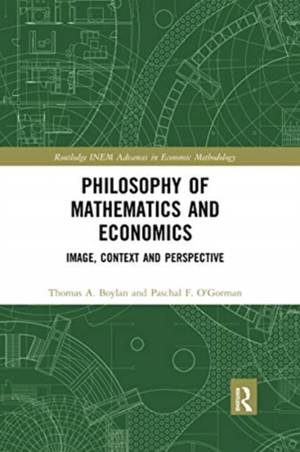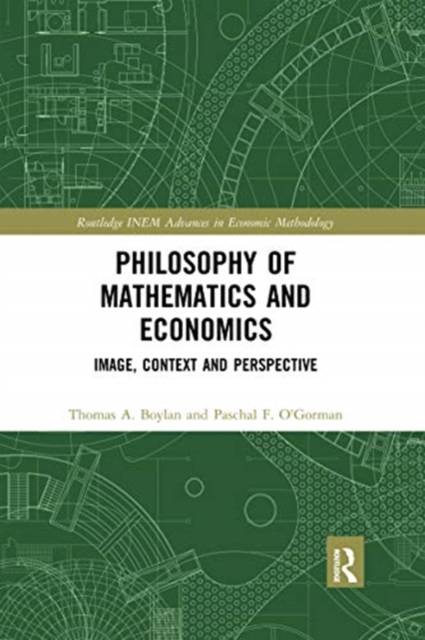
- Retrait gratuit dans votre magasin Club
- 7.000.000 titres dans notre catalogue
- Payer en toute sécurité
- Toujours un magasin près de chez vous
- Retrait gratuit dans votre magasin Club
- 7.000.0000 titres dans notre catalogue
- Payer en toute sécurité
- Toujours un magasin près de chez vous
Philosophy of Mathematics and Economics
Image, Context and Perspective
Thomas A Boylan, Paschal F O'GormanDescription
With the failure of economics to predict the recent economic crisis, the image of economics as a rigorous mathematical science has been subjected to increasing interrogation. One explanation for this failure is that the subject took a wrong turn in its historical trajectory, becoming too mathematical. Using the philosophy of mathematics, this unique book re-examines this trajectory.
Philosophy of Mathematics and Economics re-analyses the divergent rationales for mathematical economics by some of its principal architects. Yet, it is not limited to simply enhancing our understanding of how economics became an applied mathematical science. The authors also critically evaluate developments in the philosophy of mathematics to expose the inadequacy of aspects of mainstream mathematical economics, as well as exploiting the same philosophy to suggest alternative ways of rigorously formulating economic theory for our digital age. This book represents an innovative attempt to more fully understand the complexity of the interaction between developments in the philosophy of mathematics and the process of formalisation in economics.
Assuming no expert knowledge in the philosophy of mathematics, this work is relevant to historians of economic thought and professional philosophers of economics. In addition, it will be of great interest to those who wish to deepen their appreciation of the economic contours of contemporary society. It is also hoped that mathematical economists will find this work informative and engaging.
Spécifications
Parties prenantes
- Auteur(s) :
- Editeur:
Contenu
- Nombre de pages :
- 242
- Langue:
- Anglais
- Collection :
Caractéristiques
- EAN:
- 9780367592431
- Date de parution :
- 14-08-20
- Format:
- Livre broché
- Format numérique:
- Trade paperback (VS)
- Dimensions :
- 152 mm x 231 mm
- Poids :
- 362 g

Les avis
Nous publions uniquement les avis qui respectent les conditions requises. Consultez nos conditions pour les avis.






